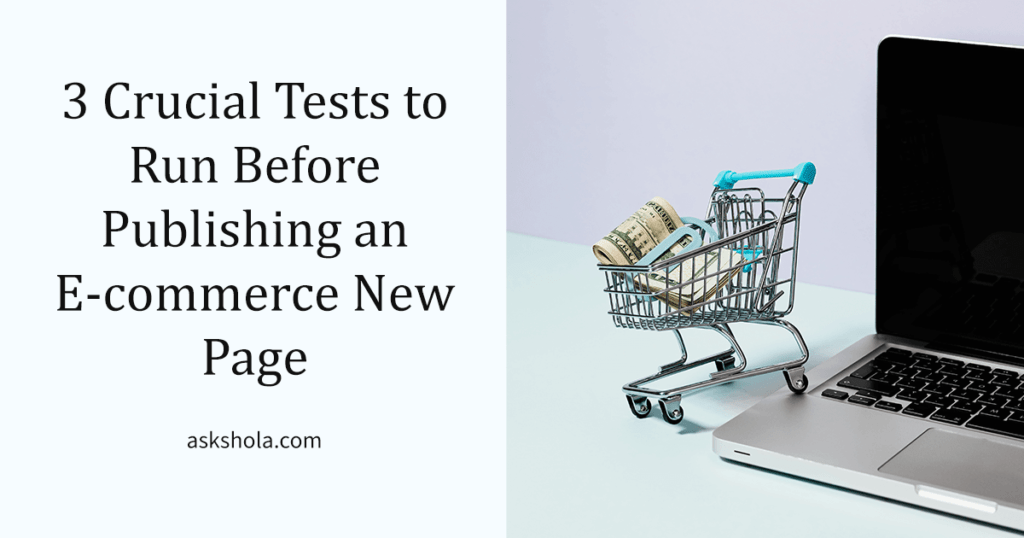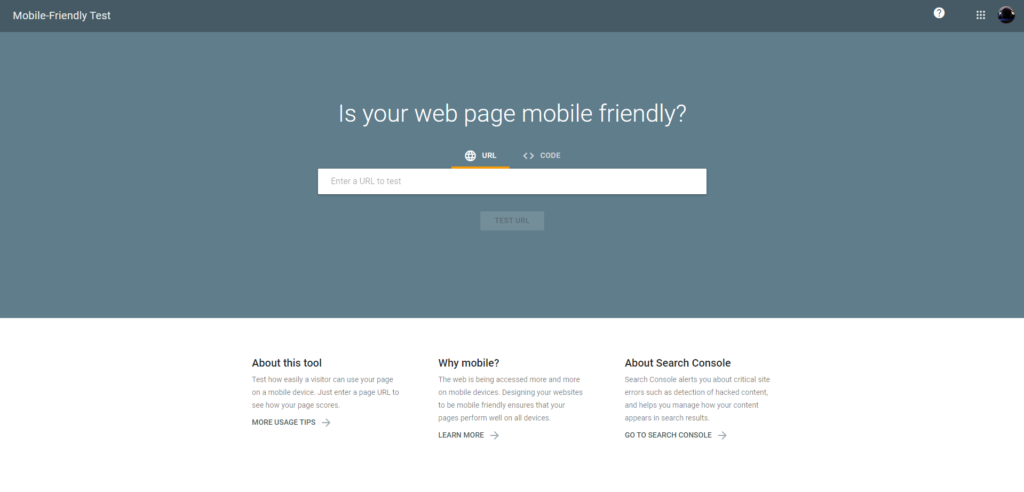3 Crucial Tests to Run Before Publishing an E-commerce New Page

Are you about to launch a new page on your e-commerce website? Before hitting the publish button, it’s crucial to ensure that the page is optimized for search engines and user experience. In this blog post, we’ll explore three tests that you should run before publishing a new e-commerce page.
1. Test Your Page Speed
Page speed is a critical factor that can affect both user experience and search engine optimization. According to Google, a page should load within three seconds; otherwise, users will leave. A slow page speed can result in high bounce rates, which can negatively impact your website’s ranking.
To test your page speed, you can use tools like Google PageSpeed Insights or GTmetrix. These tools will analyze your page’s loading time and provide suggestions on how to improve it. Some tips to improve your page speed include optimizing images, minifying code, and reducing server response time.
2. Conduct a Mobile-Friendly Test
With the increasing use of mobile devices, it’s essential to ensure that your e-commerce page is mobile-friendly. A mobile-friendly page can enhance user experience and improve your search engine ranking. Google also considers mobile-friendliness as a ranking factor.
To test your page’s mobile-friendliness, you can use Google’s Mobile-Friendly Test. This tool will analyze your page and provide suggestions on how to improve its mobile-friendliness. Some tips to improve your page’s mobile-friendliness include using responsive design, optimizing font sizes, and using mobile-friendly images.

3. Perform an SEO Audit
Search engine optimization is crucial for any e-commerce website. An SEO audit will help you identify any issues that can negatively impact your website’s ranking. An SEO audit involves analyzing your page’s content, metadata, URL structure, and internal linking.
To perform an SEO audit, you can use tools like Ahrefs, SEMrush, or Moz. These tools will analyze your page and provide suggestions on how to improve its SEO. Some tips to improve your page’s SEO include using relevant keywords in your content and metadata, optimizing your URL structure, and adding internal links.
Conclusion
Testing a page before launching it is essential for any e-commerce website. By testing your page’s speed, mobile-friendliness, and SEO, you can optimize your website for search engines and the user experience. Additionally, testing a page before launching it can save you time, money, and reputation. By fixing any issues before launching, you can reduce the cost of maintaining your website and enhance your reputation as a professional, reliable, and trustworthy e-commerce business.
In conclusion, before hitting the publish button on a new e-commerce page, it’s crucial to perform tests to ensure that the page is optimized for search engines and the user experience. By testing your page’s speed, mobile-friendliness, and SEO, you can identify any issues and fix them before launching. Additionally, testing a page before launching it can save you time, money, and reputation, making it a crucial step in any e-commerce website’s development process.






